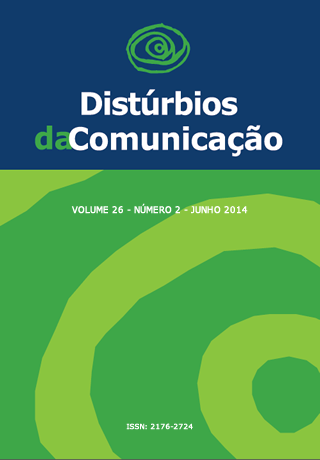Language acquisition: children and their responsive attitude to open questions
Keywords:
language, child development, linguisticsAbstract
Introduction: Since their first month of life, babies already show alternation in their communication, in which adults have an important role, assuming interaction turns with the child through questions known as eliciting questions. Verifying this alternation incited us to analyze children’s responsive attitudes toward the questions of the adult interlocutor. Objetives: (1) describe and characterize the kinds of responsive attitudes children have to open questions; (2) verify if there are any differences between the developed and non-developed kinds in the answers. Material and method: data were extracted from 28 interviews (recorded both in audio and in video) with four male children (5-6 years-old) who attended a public Kindergarten. Results: regarding the first objective, 88.7% of the attitudes were answers to the questions, 4.7% were non-responses and 6.6% were confirmation requests. Regarding the second objective, 48.2% of the answers were developed and 51.3%, non-developed. Conclusion: Although the high percentage of answers indicates that the children showed themselves sensitive to the demands of the adult interlocutor, the small percentage difference between developed and non-developed answers also indicates that children mostly depend on their assistance to develop their utterance since they oscillate between restricting themselves to the demand of the interlocutor and expanding it.Downloads
Download data is not yet available.
Metrics
Metrics Loading ...
Downloads
Published
2014-05-12
Issue
Section
Artigos
License
Copyright (c) 2014 Lourenço Chacon Jurado Filho, Jéssica Santos Cardoso Zaniboni

This work is licensed under a Creative Commons Attribution 4.0 International License.









